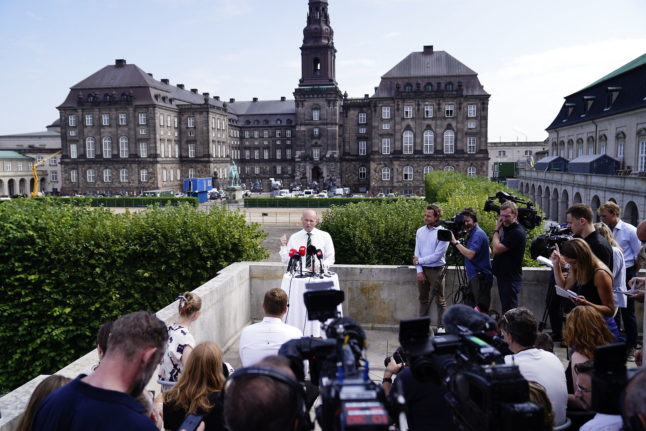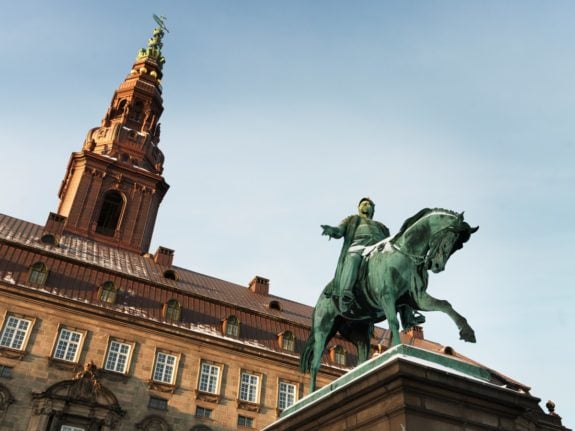Denmark will have three candidates for prime minister in the next election – a change from the usual two – after Søren Pape Poulsen, the leader of the Conservative party, said on Monday that that he will stand as a PM candidate in the next general election.
Poulsen’s declaration on Monday means there are now two leaders from right wing parties in Denmark with an expressed aim of securing backing as prime minister following the next general election. The other is the Liberal (Venstre) party leader, Jakob Ellemann-Jensen.
The third candidate is the incumbent, Social Democrat Mette Frederiksen, who commands the support of left-wing parties.
Poulsen’s announcement means smaller right-wing parties will have to decide who they would ultimately back to be prime minister.
It is unlikely the situation would hand the election to Frederiksen, as the right-wing parties can be expected to eventually align behind one of Ellemann-Jensen or Poulsen should they have an overall majority after the next election.
The leader of the Liberal Alliance, a libertarian party which currently has three seats in parliament, told news wire Ritzau his party was yet to decide on a preferred candidate.
“It’s still too early to say for us. Primarily because it’s actually unclear to me what their visions actually are,” Alex Vanopslagh said.
Another conservative party, the anti-immigration Danish People’s Party, is also yet to decide on its support, but leader Morten Messerschmidt welcomed Poulsen’s candidacy.
“It means something – who is the safest hand to lead Denmark through an uncertain time. And that’s what we’re going to have some good talks about, and I won’t be announcing anything here today,” he said.
“But I can just say that I’m very happy that Søren Pape has entered the ring,” he said.
READ ALSO: Danish Conservative leader confirms plan to become prime minister
Vanopslagh however said that Poulsen’s announcement “does not make a positive impression when [he] has waited for so long”, leaving Liberal leader Ellemann-Jensen to “take the flack” as opposition leader through a difficult period.
Pernille Vermund, leader of the far-right Nye Borgerlige (New Right) party, said she would not announce which of the two her party will back until after the election.
“Politically I’m probably a bit closer to Søren Pape Poulsen, but on the other hand the last three years have given me a good impression that if you make an agreement with Jakob Ellemann-Jensen, you can trust the Liberal party,” she said.
Vermund also called for clear statements from both party leaders on their immigration policies.
The announcement by the Conservative leader has disrupted the established order in the ‘bloc’ system which usually prevails in Danish politics.
The ‘bloc’ classification commonly broadly denotes whether parties are right or left of centre.
Recent decades have seen the ‘blue bloc’ parties work together in parliament to back the leader of the Liberal party, currently Ellemann-Jensen, to be prime minister if they command a majority after a general election.
The next election in Denmark must take place no later than June 4th next year, but recent speculation has suggested Frederiksen is likely to call an election as soon as this autumn.
A recent Voxmeter poll for news wire Ritzau gave the Liberal party 13.4 points, compared to 13.3 points for the Conservatives. The poll gave an overall conservative majority.
READ ALSO: How likely is Denmark to have a general election ahead of schedule?



 Please whitelist us to continue reading.
Please whitelist us to continue reading.
Member comments